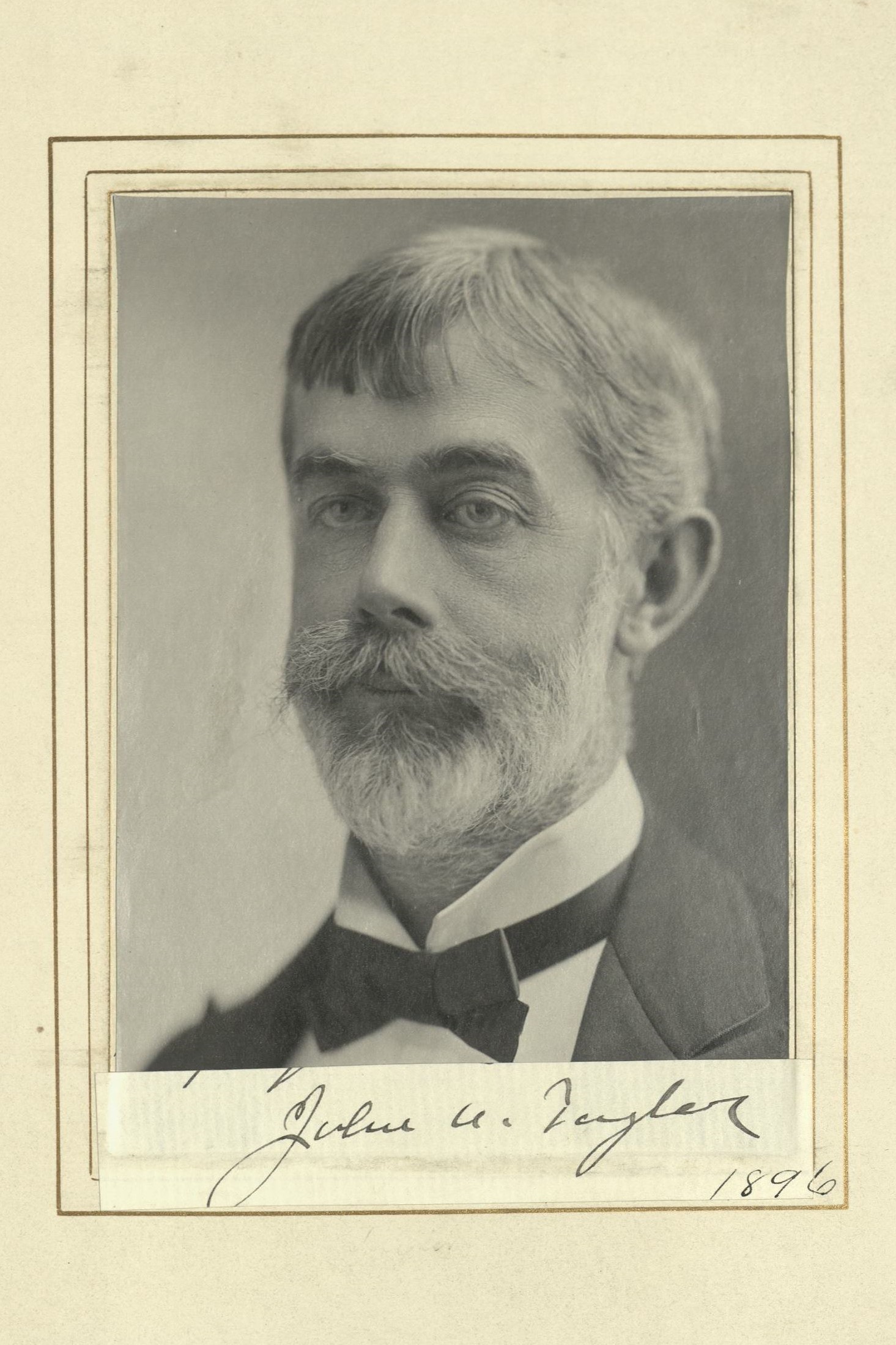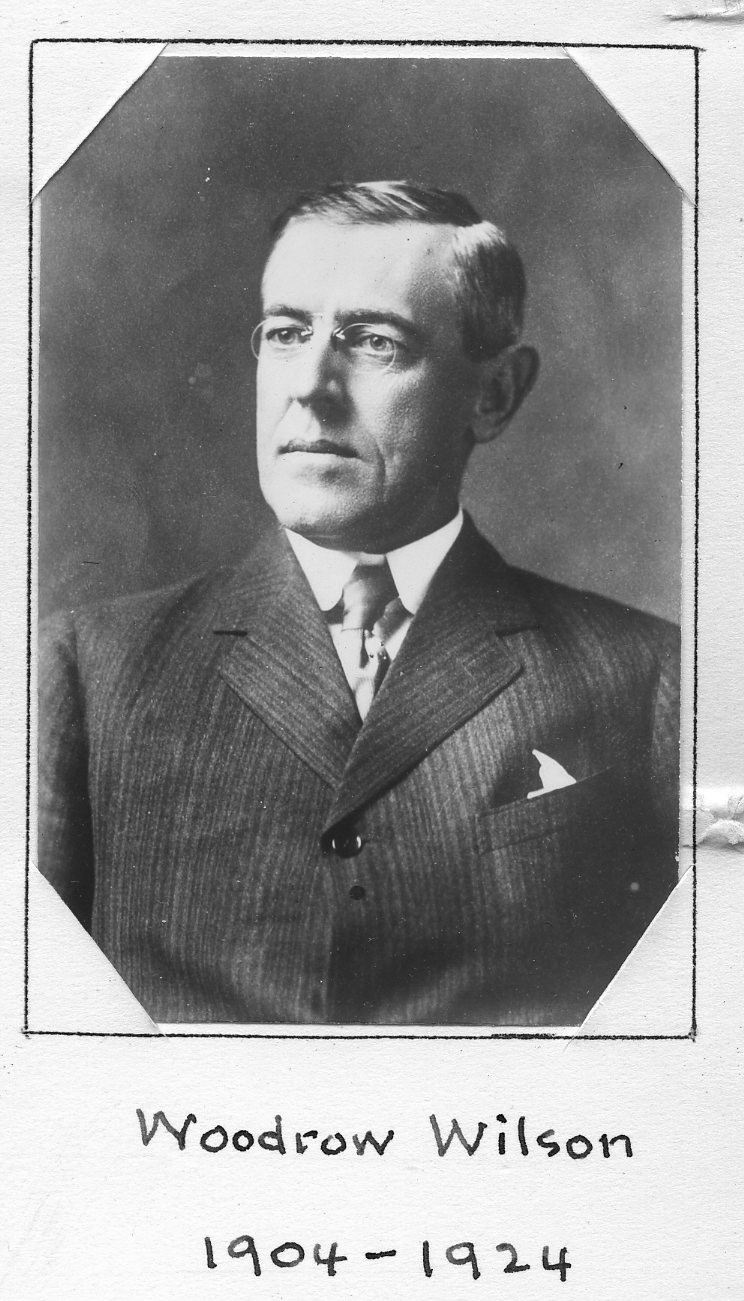Member Directory,
1847 - 1922
Charles H. Levermore
Author/Educator
Centurion, 1903–1927
John A. Taylor and William A. Keener
Mansfield, Connecticut
Berkeley, California
Age forty-seven

Century Memorial
Nine years after the surrender of Germany, public discussion of the sequel is still dividing itself largely between two contentions, neither of which appears to lead anywhere—the idea of statesmen that, if nations agree to “outlaw war,” there will be no future war, and the idea of soldiers that there will not only be another war, but that the manner of waging it will make 1914 and 1918 seem an era of humane belligerency. Prophetic history, judged in the light at least of past experience, is usually futile. Thackeray’s prediction that, after Waterloo, Frenchmen and Englishmen would probably be killing one another for centuries to come, unquestionably voiced the prevailing belief of his time, but every subsequent war in which both nations were engaged found them fighting on the same side. Congressional Chauvinists after 1865 prophesied, as a logical and unavoidable result of Southern reconstruction with the suffrage returned to the government’s defeated enemies, delivery of the Union “to the tender mercies of the rebels we have conquered,” yet it was exactly twenty years before anybody but a Republican president occupied the White House. What may be called hypothetical history is a safer exercise of imagination, because no one can prove a negative. It is possible even to grow quarrelsome over the question what would have happened if Napoleon had defeated Wellington, if the seceding states of 1861 had been allowed to go, if the United States had intervened in Europe in 1915 or had not intervened in 1917, if the League of Nations had been in force in 1914, or if President Wilson had yielded in 1920 to the proffered compromise whereby a Senate majority for participation in the League would be guaranteed if he would sacrifice Article Ten. Still, it is evident that even convincing argument on these disputed matters cannot get us anywhere.
There is a body of men in public and private life, however, whose approach to the problem of preventing another war is based solely on considerations of the present, and Charles Herbert Levermore was one of them. Like all other adherents to the general principles of the League of Nations, he had the advantage of presenting practical proposals, not abstract assertions or negations. Like them again (in the United States at any rate) he had the disadvantage of opposing a political vis inertiæ if not a settled antagonistic policy. Dr. Levermore was not converted by the late war to his personal conclusions. For thirty years an investigator and teacher of past history, he was serving as Bureau Director in the World Peace Foundation a year before the war began; his post-war work with the League of Nations Union and the World Court League was only continuance of pre-war convictions and activities.
But Dr. Levermore was neither a bigot who believed his own ideas to be useless unless adopted to the last particular, or a mere controversialist who preferred the successful silencing of an adversary to winning him over through compromise. The program framed by him in 1924, and for which the Bok $50,000 prize was awarded, contained three main proposals—that the United States become a party to the World Court; that, without committing itself to the explicit engagements of membership in the League, it use the machinery of the existing League of Nations as “an instrument of mutual counsel,” and that international law be revised and formulated into a working code for guarantee of international justice. The lawmakers received these not impracticable proposals coldly. They would probably have received in a similar spirit any other proposals on either side of the controversy; for, as with a certain other public issue on which public attention is at present converging forcibly, legislative action for international peace is surrounded with minor political doubts and uncertainties which render a policy of mere evasion highly agreeable to the politician. But Dr. Levermore also held another firm belief; that public questions which cannot, because of the logic of events, be removed from urgent public interest, are questions which in the long run are certain to be settled and, in this country, to be settled rightly.
Alexander Dana Noyes
1928 Century Association Yearbook



